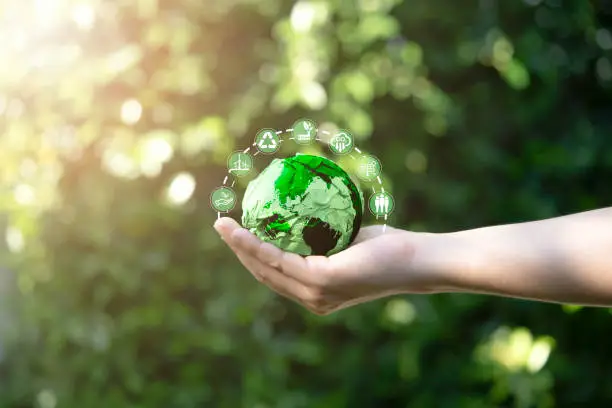MUHAMMADIYAH.OR.ID, JAKARTA – A representative of the Eco Bhinneka Muhammadiyah and GreenFaith Indonesia Parid Ridwanuddin stated that Gen Z and Millennials, unlike previous generations, are becoming increasingly vocal about the environmental crisis. Many are demanding that the government take real action to address ongoing environmental damage.
Citing a 2022 UNDP (United Nations Development Programme) survey, Parid noted that around two million young people aged 0-35 are highly concerned about environmental destruction. He pointed out that younger generations are pushing for urgent solutions, while those over 36 tend to show less concern.
“This lack of awareness among older generations has created an unfair burden. Younger people are left to fix the damage caused by years of inaction. Future generations deserve a healthy planet. We should leave behind fresh water, not tears,” said Parid in a Focus Group Discussion (FGD) organized by Oxford Policy Management Limited (OPML) and Eco Bhinneka Muhammadiyah on Thursday, March 13.
Parid stressed the importance of involving young people in policymaking, especially as disasters like floods and landslides continue due to poor environmental management.
Meanwhile, environmental activist from South Kalimantan, Al Bawi, shared his experience with the Save Meratus movement. The Meratus region, known for its rich biodiversity, faces serious threats from deforestation, mining, and climate change. Through interfaith collaboration, Muhammadiyah has helped train environmental advocates, strengthen advocacy efforts, and raise public awareness about conservation.
“Working together across different faiths and communities is essential in addressing the environmental crisis,” said Al Bawi. He hopes these efforts will inspire similar initiatives across Indonesia and empower young people to take action.
“We hope this discussion will make a real difference in tackling Indonesia’s environmental challenges. Change starts with small actions, and we have to nspire more people to become part of the solution,” said Parid.
In addition, Aldi Destian Satya from the Confucian Youth Community also highlighted the role of culture and religion in protecting the environment.
“Indonesia’s cultural diversity is a strength. Each tradition has its own ways of preserving nature, such as sustainable farming and responsible resource management,” explained Aldi.
Aldi encouraged young people to get involved in conservation activities like reforestation and river cleanups.
“Youth have the energy and creativity to bring real change. By working together, we can create a better future for the next generation,” said Aldi.
This FGD was the fifth in a series of discussions held in Jakarta, Sawahlunto, Riau, and Ambon, showing a strong commitment to sustainable development and environmental protection.








